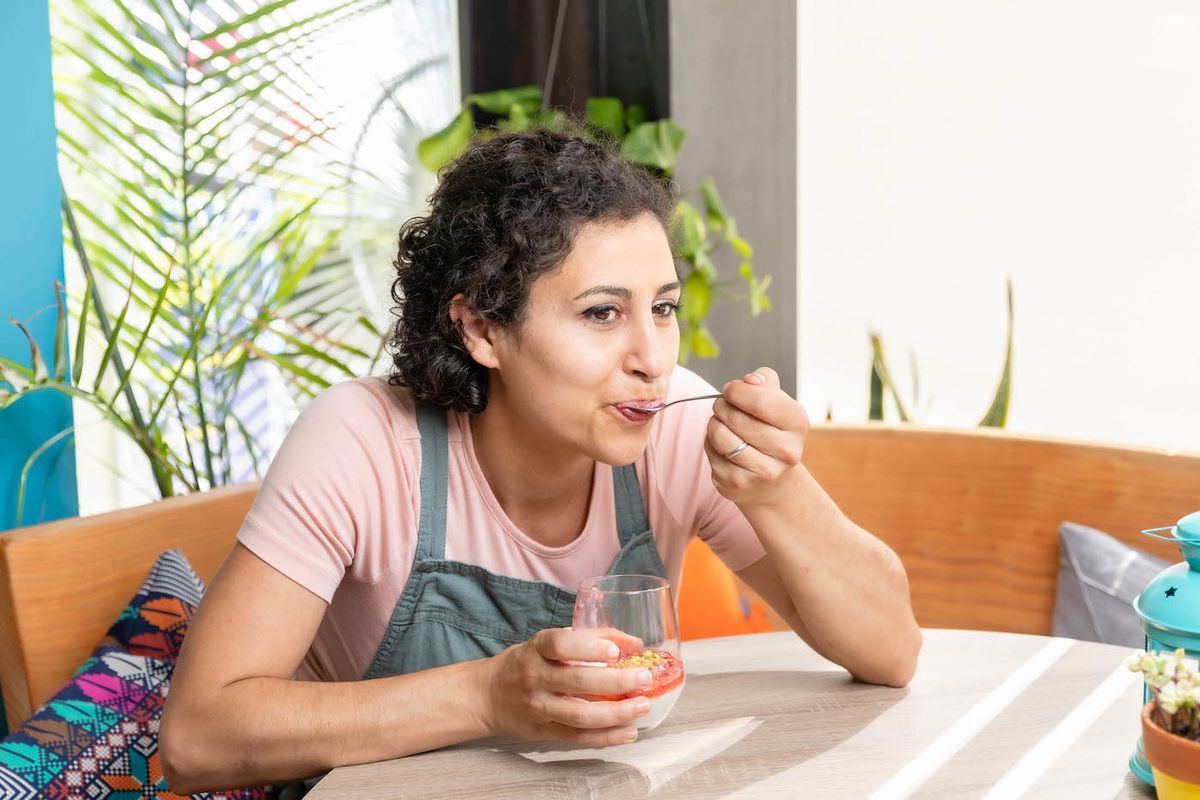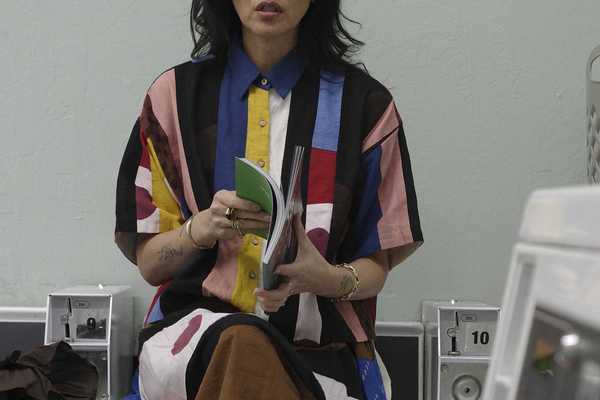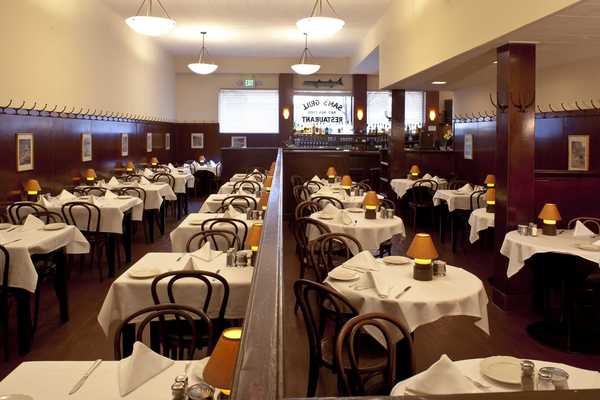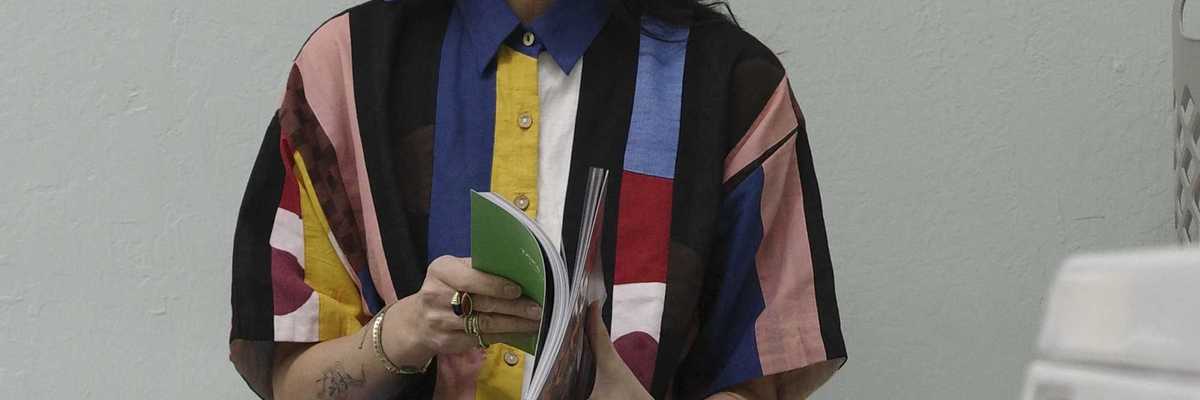The second location of Reem's California opened in the Mission just days before COVID-19 ground the city to a halt. In less than a week, the Arab bakery went from having a line out the door to none at all.
Across the bay, the original Reem's location in Fruitvale was locked down, too. Chef-owner Reem Assil had three choices: open for take out and try to survive during the pandemic; reopen as a relief kitchen to feed the city's most vulnerable; or shut down altogether and leave 22 Oakland employees to fend for themselves in the imploding job market.
In the end, there was no choice at all. "I almost can't see a future without those workers, they're really just so indispensable," she explains. "I'd rather take this time to do something a little bit more radical. It's going to be harder and more messy [but that's] what change entails."
By April, she had teamed up with two organizations, World Central Kitchen and SF New Deal, to make nutritious, healthful meals for the homeless and others impacted by the economic crisis triggered by COVID-19. Reem's also started the Fruitvale Workers COVID-19 Hardship Fund to provide additional assistance to local restaurant workers, many of whom didn't qualify for stimulus or unemployment funding.
In some ways, the transition at Reem's in Fruitvale was a long time coming. Social justice and community building—providing opportunities and living wages to individuals from marginalized communities, and resources to those working to empower them—had been at the core of the business since its inception in 2015. The pandemic allowed Assil to take a step back from the capitalist values driving the restaurant industry and consider what it should look like going forward.
"These broader systems have to change. We have to approach this with a lens of equity," says Assil. "All of us [have] to chip in on the true cost of food."
The commissary kitchen strategy was relatively straightforward. Those with resources—individuals, corporations, and government entities—donate, provide grants, or buy regularly priced menu items from local restaurants. With those funds, the restaurants purchase ingredients, keep the lights on, and pay their staff a living wage to put together hundreds of meals each week. Those meals then get distributed through existing community social service networks to food-insecure people.
"Everybody wins," says Assil. At the end of the day, restaurants stay open, jobs are retained, people are fed, and resources are redistributed within the community. The equity it engenders has a ripple effect through the community, impacting the bigger picture of housing, health care and other issues, she explains.
Reem's in Oakland will continue as a relief kitchen for the foreseeable future. After that, the only certainty is that social justice will remain a fundamental component of the business.
"Whether we create our own nonprofit side of the business to feed people or we continue to partner with folks like World Central Kitchen and SF New Deal...I don't foresee that work disappearing any time soon. In fact, I hope that it becomes a part of our history," she says.
Reem's in the Mission remains open to the public for online ordering and takeout. The restaurant's popular meal kits can be picked up from either the East Bay or San Francisco location.
The 7x7 Spice-In With Chef Reem Assil

In episode two of The 7x7 Spice-In, chef Reem Assil made seven-spiced kafta meatballs and tomato sauce.
(Angelina Hong)
In this summer's three-part cooking class series, a collaboration between 7x7 and The Spice Hunter, chef Reem Assil has taught us to prepare baba ganoush two ways and kafta bil bandora (meatballs and sauce).
In her third and final episode, launching on IGTV and YouTube on August 20th, Assil will be preparing mahalabiya, a sweet and creamy summer dessert.
"I just sort of became obsessed with mahalabiya when I first opened my bakery," explains Assil. "It's a milk custard [similar] to the Italian panna cotta, and we infuse it with aromatic cardamom and dried rose or rose water."
Though any seasonal fruit compote goes well with mahalabiya, Assil will top this version with fresh, seasonal strawberries. "It's a really fragrant, cold, refreshing dish perfect for summer," she says.
Ingredients for Reem Assil's Mahalabiya
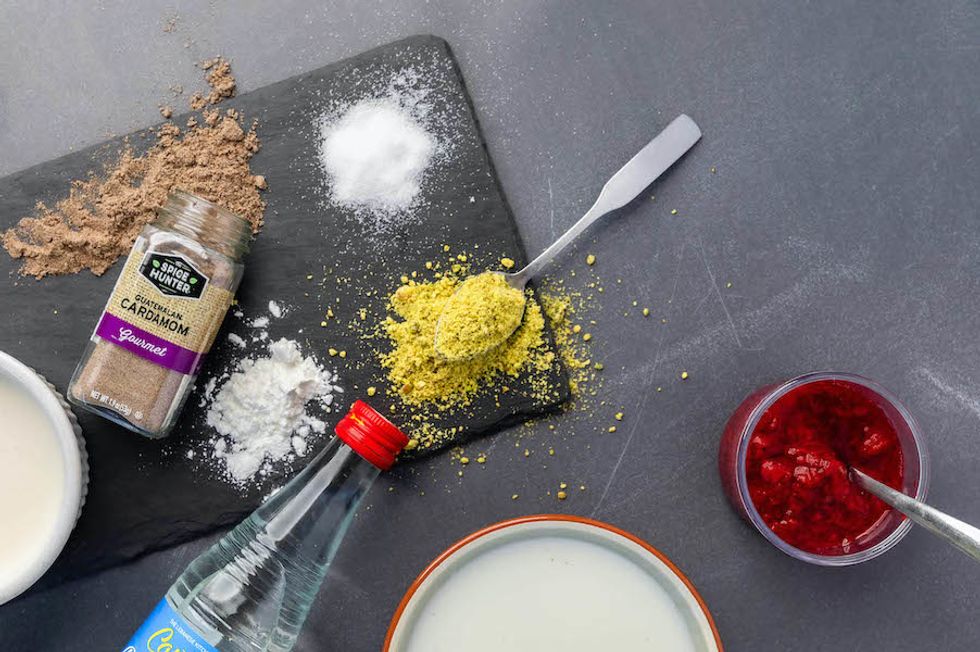
(Angelina Hong)
Chef Reem Assil serves her mahalabiya in stemless wine glasses for a fancy effect but says the creation of the dish actually quite simple. Aromatic cardamom, a hint of rose water, and seasonal berries liven up a custard that Assil compares to panna cotta.
Ingredients
2 cups whole milk
1 cup sugar
1 tsp ground cardamom (The Spice Hunter)
1 cup cold heavy cream
1/4 cup cornstarch
2 tsp rose water
Garnish
2 tbsp sugar
1/4 cup crushed pistachios
1 cup strawberry compote*
*Strawberry Compote
1 lb strawberries, hulled
½ tsp ground cardamom (The Spice Hunter)
2 tablespoons sugar
2 tablespoons rose water
1 tablespoon lemon juice, about half a lemon
Prep your ingredients for mahalabiya using the promo code 7X7SPICEIN to receive 20 percent off purchases through September 1st at spicehunter.com. Tune in to episode three on IGTV and YouTube August 20th.
About The Spice Hunter
The Spice Hunter was founded by a woman on a quest for the best spices from around the world. For the past 20 years, the California company has made it their mission to continue seeking innovative and global flavors that will bring inspiration and creativity to the home chef. Their spices and herbs are sourced from the finest growing regions in the world, and are both organic and non-GMO certified. Use the code 7x7SpiceIn to receive 20 percent off your purchase through September 1, 2020; spicehunter.com.



